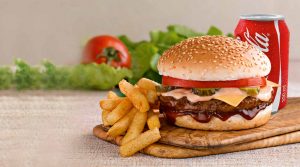The insulin index for weight loss
 I have often talked about the glycemic index of foods saying that if we want to lose weight or stay in our weight we must be careful to eat foods with a high glycemic index and in particular to pay attention to the glycemic load of meals. When we eat a carbohydrate meal, in fact, we determine a response to insulin , a hormone secreted following the rise in blood sugar. The mechanism that makes us fat is simple. Insulin is a hormone that regulates the concentration of glucose in the blood: if we have a high blood sugar, insulin is secreted to make it lower. How? By converting a portion of sugars into fats. There are other hormones that have a blood sugar lowering effect , but insulin is the most important.Insulin like glucagon is a hormone that has a particular effect on metabolism.
I have often talked about the glycemic index of foods saying that if we want to lose weight or stay in our weight we must be careful to eat foods with a high glycemic index and in particular to pay attention to the glycemic load of meals. When we eat a carbohydrate meal, in fact, we determine a response to insulin , a hormone secreted following the rise in blood sugar. The mechanism that makes us fat is simple. Insulin is a hormone that regulates the concentration of glucose in the blood: if we have a high blood sugar, insulin is secreted to make it lower. How? By converting a portion of sugars into fats. There are other hormones that have a blood sugar lowering effect , but insulin is the most important.Insulin like glucagon is a hormone that has a particular effect on metabolism.
Insulin is responsible for the conversion, in simple terms, of carbohydrates and proteins into fat . When we eat a meal with a high glycemic load, unnecessary sugars go for a trip thanks to insulin, and then converted into fat
Clearly, high-glycemic foods favor insulin. However, from the late 1970s until the late 1990s, when a certain Holt published a study correlating food and insulin, some studies established that it was not just carbohydrates that promoted insulin release, and therefore it was not just the glycemic index to influence insulin. But alas, fat and protein too. Foods that combine sugars with more fat or protein with more fat (fat alone or non-fat foods) have what is called an insulin index. In the second case, foods that contain both proteins and fats are not carbohydrates, so they have a low glycemic index.But nothing to do, THEY ARE FAT, because they stimulate insulin, so they have an insulin index.
To eat well we must avoid both a high glycemic index and a high insulin index.
This is why, for example, protein diets make you fat or do not produce the desired results after the first few times: some types of protein in foods that are abundant in these diets raise insulin, which converts all these beautiful stores into fat. In short: a tragedy!
Let’s see what are the foods that, despite not having carbohydrates (and therefore with a low or zero glycemic index), increase our insulin making us fat.
FOODS WITH HIGH INSULIN INDEX (Even if they have a low GI)
I’ll start with those that have a higher insulin index.
– Animal proteins: beef and cured meats
– Animal proteins: fish
– Animal proteins: cheeses and dairy products
– Animal proteins: eggs
– Vegetable proteins: lentils and beans.
Other foods with a high insulin index correspond to foods with a high glycemic index : for carbohydrates, generally those with a low glycemic index such as whole foods correspond to a low insulin index. Fat-laden baked goods such as shortbread, snacks and croissants are an exception, which have a high insulin index (and a glycemic index generally lower than white bread and white rice or fried potatoes).
HOW CAN WE AVOID GETTING FAT?
We always avoid eating foods with a high glycemic index, preferring whole fibers.
We avoid eating meat, fish and cheese in large quantities (it is clear that if we eat them in limited portions, of a maximum of one hectogram, the insulin load will not be lethal!) , Even light dairy products raise insulin. We prefer thin slices to steak, white to red meat. Side dishes with animal proteins must always be low in fat and based on many vegetables. We prefer vegetable proteins in our daily diet, certainly less “insulinic” than animals. This does not mean that animal proteins are evil: but eating cold cuts or steaks because we think that carbohydrates are the devil is not good for us., while eating plenty of vegetables will never hurt us. 🙂





























+ There are no comments
Add yours